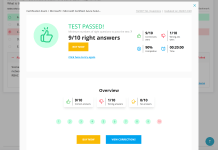
Unexpected events such as job loss, a medical emergency or death in the family, or a natural disaster can put even the most responsible borrowers in a bind, making timely loan payments extremely difficult. Defaulting on a personal loan, or any type of loan has serious financial consequences, not to mention the stressful days and sleepless nights you’ll spend trying to figure out how to get yourself out of this predicament. You don’t want to get there, and you can avoid it.
What is a Loan Default?
When a borrower fails to make monthly loan payments or pays less than the required amount for a specified period of time as specified in the terms and conditions, the loan is considered in default. Borrowers in the Philippines typically have 90 days or three months to settle their outstanding balance before their loans become delinquent. This is true for Pag-IBIG multi-purpose loans as well as housing loans. Some banks have shorter grace periods before declaring a loan default. Citibank, for example, considers a personal loan to be in default if it has gone unpaid for more than 60 days.
Can You Go to Jail in the Philippines for Not Paying a Loan?
No one shall be imprisoned for debt, according to the Bill of Rights. Lenders and debt collectors are not allowed to have you arrested or imprisoned because you are unable to pay your debt. But if you write a bouncing check or leave your home without notifying your creditor, these actions can be used against you in a criminal case.
What are the ramifications of loan default?
You can expect any of these loan default consequences if you have an unpaid bank loan in the Philippines.
1. Your debt will amass.
When you default on your personal loan, you will owe more money because the lender will require you to repay the overdue balance, interest, penalties, and other charges in full. You can be charged a late payment fee of 7% to 10% of the unpaid balance for each month your loans remain unpaid. Simply put, if you do not repay your personal loan, you will become further in debt.
2. Your lender loan accounts will be closed.
Another consequence of loan default is that the lender will close not only the unpaid loan account but any other loan or credit card accounts you have with them as well. Worse, your unpaid loan account will be turned over to a debt collection agency, putting you under even more pressure to repay your loan.
3. Your car or home will be repossessed by the lender.
If you fail to repay the loan, the lender will repossess the loaned car or house in order to recoup their losses. If you took out an SSS housing loan, for example, the SSS will foreclose on your home as soon as you fail to make six monthly loan payments. The asset will be auctioned off by banks and other lenders. If the value of the repossessed property is insufficient to cover the unpaid loan, you will still be responsible for the difference.
4. Your credit score will suffer.
If you fail to make loan payments on time, your credit score will suffer. Banks report unpaid loan accounts to credit bureaus, which are in charge of calculating your credit score. You will have a lower credit score if you have a poor credit history, which will make it more difficult to obtain a loan or a credit card in the future.
Sean Martin D. Plantado, head of the customer service for Digido.ph, notes that improving credit ratings takes time, and when there is an emergency, people don’t have time to work on it.
5. Unpaid government loans will be deducted from your benefits.
Failure to pay your government loan will have an impact on the benefits you can receive. In case of a default on your SSS Salary loan, the loan balance including interests and penalties will be deducted from your retirement, disability, or death benefits.
Can Bank in the Philippines Declare Loan Default During COVID-19?
The Credit Information Corporation (CIC) advised banks and private lenders not to declare a loan default or delinquency during the pandemic. In the midst of a national health crisis, banks must protect consumer rights, and the CIC must ensure that financial institutions submit accurate data in order to ensure a fair review of each borrower’s credit history and financial condition during the pandemic.
Final Thoughts
Before you are on the verge of defaulting on a loan, contact your lender to explain your situation and negotiate a new loan term. If you have a SSS online loan application that has defaulted or is about to default, consider using the loan restructuring program to reduce your loan payments.








